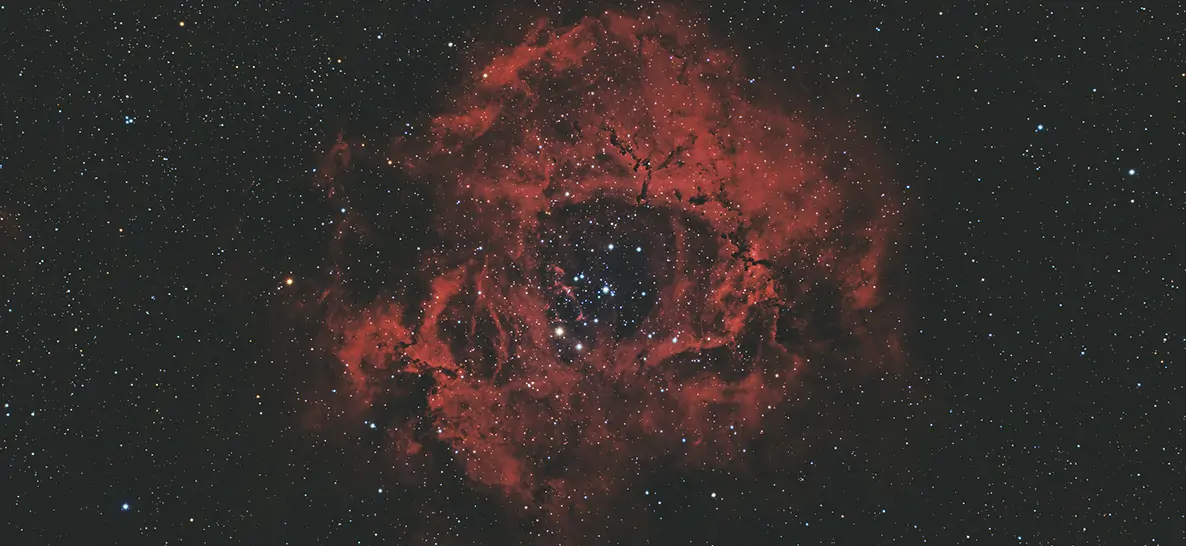
“’Oldest Rocky Planets’ Formed Just A Billion Years After The Big Bang”. Depending on your own background with the Christian church, this headline from earlier this week may have elicited a reaction unintended by the writers. The story is an exciting one that, according to Tiago Campante at the University of Birmingham, even “opens the possibility for the existence of ancient life in the galaxy.” But, for many evangelicals, two words in the headline throw up a red flag and cause the entire news story to be called into question. Those words, of course, are “Big Bang.”
The term has recently been at the center of debate in religious circles, but examining its roots may actually show a way forward for the science and faith debate.
The Lack of Divide
This fall, the ever-newsworthy Pope Francis spoke at the Pontifical Academy of Sciences and attempted to bridge a gap between two of modern culture’s biggest ideological divides: Creationism and the Big Bang Theory. He did that not by saying that the two sides should be civil or seek common ground; he did it by denying that the divide was there at all.
The pope said, “The Big Bang, that today is considered to be the origin of the world, does not contradict the creative intervention of God; on the contrary, it requires it … When we read in Genesis the account of creation [we are] in danger of imagining that God was a magician, complete with a magic wand that can do all things. But He is not.”
The comments (and some of his other thoughts about evolution), made international headlines, with some commentators insinuating that they represented a rift in theological understanding among religious leaders. But, as this piece in Time notes, the statements don’t represent any sort of major departure in Vatican teaching.
The reason the story gained so much traction and was plastered across the Internet is because of a narrative pushed by many in the media and perpetuated by some in evangelical circles for generations: The Big Bang theory contradicts the Bible.
The Big Bang’s Church Roots
The “conflict” between the Big Bang theory rears its head every time a related news story—like the one discussing recently discovered planets formed shortly after the Big Bang—hits the Internet. But why should Christians feel conflicted? Like many major scientific discoveries, the Big Bang was first suggested by a Christian who saw no ideological division between their faith and their research.
In a recent issue of RELEVANT, I interviewed Father Andrew Pinsent for a piece about the intersections of science and faith. In addition to being a Catholic priest, Father Pinsent is the Research Director of the Ian Ramsey Centre for Science and Religion at Oxford University and is a world-renowned physicist. Pinsent said that even in some academic circles, there is a perception that Christians should be against the Big Bang.
“A question I sometimes get asked if I’m giving a talk at a school is, ‘How can I be a priest and believe in the Big Bang theory?’” he said. “And I always enjoy getting this question because I say, of course, because we invented it. It was actually a priest, Georges Lemaître, who solved Einstein’s equations to predict an expanding universe.” Lemaître’s ideas were so revolutionary, even Einstein praised his work. Today, he’s known as the “Father of the Big Bang.”
Pinsent continued, “The history of the relationship between science and faith isn’t what they necessarily expect. It’s much more complex and interesting than this simplistic prejudices might suggest.”
Simplistic Prejudices
Sadly, today people like Lemaître have become outliers. The Church so frequently acts threatened by ideas that they fear will undermine the authority of their teachings, that it’s often created a culture afraid to ask big questions about science, the Big Bang and evolution without being labeled (the “H-word”!).
These “simplistic prejudices” have been cultivated by culture-war speak from some theologically conservative Christians and by anti-God rhetoric from some in science circles. But, just because some of the most vocal proponents of Creationism and the Big Bang theory may have different ideas about God doesn’t mean the two ideas can’t co-exist.
From time to time you may see a Christian bumper sticker, religious T-shirt or church sign with some variation of the statement: “The Big Bang Theory: God spoke, and BANG, it happened.” It’s meant to be ironic or snarky, but really, it perfectly underscores the false dichotomy that exists in many conversations about science and faith.
For Christians who believe in the Bible, scientific research, new historical revelations or deeper critical analysis shouldn’t be viewed as a conflict to our faith: It should be a compliment to it. Now, none of this is to say that everyone has to believe the Big Bang Theory is true. Good Christians (and, it’s true, a few scientists) remain skeptical of the theory, and their voices should not be dismissed or ridiculed. But those conversations needn’t be fueled by fear and accusations.
Ultimately, good science will never contradict God’s truth. So when there is a seeming contradiction, either the science is bad or our understanding of the Bible needs adjusting. Both are possible. And, in either case, we learn more about who God is and how we are supposed to live.
Uncovering Truth
There are different ways to interpret the book of Genesis and to examine the historical context or literary style it was written in. But understanding the roots of ideas—like the Big Bang—that came from within the church should demonstrate that our faith isn’t under attack by culture and intellectual inquiry.
Our faith and the field of science share a similar goal: They are about understanding truth. If we believe that the Bible is true, then why should a different method of uncovering truth threaten it?
Lemaître saw the dangers in “reducing the Supreme Being to the rank of a scientific hypothesis,” and didn’t let a fear of new understandings about the universe shake his faith.
Maybe the most profound lesson to learn from Lemaître is how he approached science (or, as he said to, “to grasp the truth”): He kept an open mind. Though he steadfastly believed that God was the Creator, he also said that “[The Christian researcher’s] investigative means are the same as those of his non-believer colleague … After all, a Christian does not act differently from any non-believer as far as walking, or running, or swimming is concerned.”
In our interview, Pinsent pointed to “minds of great subtlety” like St. Augustine and Lemaître—believers who made influential observations about the natural world. In a culture of cheesy church marquees and Twitter debates, subtlety can be in short supply, but it’s the key to understanding how science can actually co-exist with faith.
It’s something generations of Christians understood, and something many Christians of today could benefit from rediscovering. “Christians need to be more sensitive to their own intellectual past, the intellectual riches, ways of interpreting Scripture,” Pinsent said. “And they’ll find that a lot of the things that appear to be sources of conflict actually turn out to be less problematic than they might appear at first.”





















